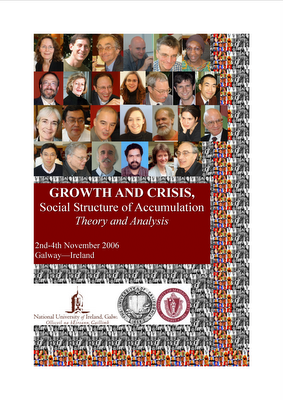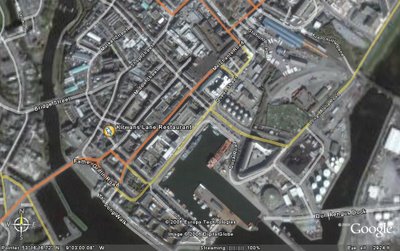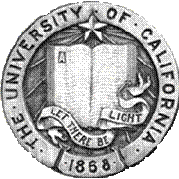A. The Private Property Elephant: An Anarcho-SSA analysis of globalization
Presented by: Dr. John Asimakopoulos
Email:
john.asimakopoulos@bcc.cuny.eduNew SSAs are forming in the sphere of production on global segmentation of labor and neoliberal trade regimes. These SSAs lack a corresponding regime for consumption unlike their Fordist era counterpart due to an extensive victory of capital over labor. This results in inadequate purchasing power within developed nations for whom global production is intended, raising the potential of global stagnation and rising inequality. Globalization is re-examined through an Anarcho-SSA framework providing a working theory of evolutionary anarchist epoch change achieving dramatic global expansion and reduced inequality by altering existing property relations.
B. The contemporary American SSA in the light of CEOs remuneration evolutionPresented by: Professor Robert Boyer
Email:
boyer@pse.ens.frThe explosion of CEOs remuneration during the 90s and the persistence of unprecedented levels in the 2000s is used as an evidence of the emergence of a finance led SSA or accumulation regime in the terms of régulation theory. It is argued that the diffusion of stock-options and financial market related incentives, that were supposed to discipline managers, have entitled them to convert their intrinsic power into remuneration and wealth, both at the micro and macro levels. This is the outcome of a de facto alliance of executives with financiers, who have thus exploited the long run erosion of wage earners’ bargaining power. This de facto institutional compromise has been structuring a new accumulation regime, quite specific to the US. It is not clear that this regime should or could diffuse all over the world, since it is highly specific to the US economy, even if the diffusion of stock options and financialisation has been quite general, but not so strong, in other OECD countries.
C. Finance-led Growth Regime in Brazil: a ‘regulationist’ analysis of the liberalization period
Presented by: Dr. Miguel-Antonio Pinho Bruno and Dr. Ricardo Dantas Caffé
Email:
mbruno@ibge.gov.br;
ricardo.caffe@gmail.comThree main tendencies can be identified in an analysis of the long term evolution of the Brazilian economy: a) a persistent fall in the participation of the fixed and productive capital in the stock of the total fixed capital; b) the increase of participation of the financial income in the GDP (rentier share) since the introduction of the Real Plan; and as a direct result of this; c) the tendency to a low and unstable economic growth. Brazilian economy is led astray from a powerful growth trajectory, at an average rate of 7%, starting from 1980, and faces great difficulty in recuperating it under the present growth regime. It has been more than twenty-five years of low levels of growth, at an average rate of 2.3% per year, during the period 1980-2004. To explain the causes of such an unfavorable performance, the paper presents an analysis of the post-liberalization period, using a theoretical and methodological approach as proposed by the French Theory of Regulation. The empirical evidences reinforce the hypothesis that the low rates of accumulation of productive fixed capital in the current economy is one of the main consequences of the present and particular finance-led growth of the Brazilian regime.
D. The Discourse of Property: Continuity within TransformationPresented by: Dr. Ann Davis
Email:
Ann.davis@marist.eduThe discourse of property has been used to legitimate the market economy. Although forms of property have changed, the rhetoric has provided a basic rationale for capitalism in terms of individual freedom and countervailing power with respect to a centralized, expropriating government (Milton Friedman; Douglass North). Given a republican form of government, the success of this discourse depends on a relatively wide distribution, even as the form of property has changed from land and labor, to finance, in distinct periods.
Individualism and individual private property have been mutually constituting. Property supports the independence of the individual, without which individual autonomy is not possible. The government in turn distributes, supports, and regulates the individual private property, which in many circumstances is contradictory.
E. The logic of financial crisis in a financialing regime of accumulation : the Brazilian specific casePresented by: Dr. Hawa Diawara
Email:
diawara7@yahoo.frIn this article, I study the question of financial crisis for the case of Brazil underlining the interactions between the monetary policy, the evolution of macroeconomics indicators and the financial market anticipation (or the “extern credibility”). I use Kalecki’s approach of growth and the concept of money in the theory of Regulation to analyse these interactions. I show that the question of financial crisis in a country like Brazil (with a strong external constraint) reveals the problem of monetary sovereignty, so it is neither a question of “market” imperfection” nor a lack of “prudential governance” as opposed to the conventional theory.
F. Will Marx be Right – China and the World EconomyPresented by: Mr. Andrew Glyn
Email:
andrew.glyn@ccc.ox.ac.ukThe paper discusses the implications of the extraordinary growth and integration into the world economy of China. It examines the quantitative scale of these developments and then considers what are in the implications for workers in the developed economies of the fact that capital now has access to a “reserve army of labour” of a quite unprecedented size?
G. Corporate Social Responsibility as a form of transnational regulation?
Presented by: Ms. Maria-Alejandra Gonzalez-Perez
Email:
magonzalez@nuigalway.ieAs a consequence of the demands for responsible business social and environmental behaviour by civil society actors and organisations in consumer markets, the establishment and development of a matrix of norms and institutions for legitimisation and accountability of firms’ practices with both local and transnational representation has been stimulated. Social and environmental market entry regulations enforce a systematic approach to civil society concerns across value chains and production networks. The interconnectedness of the local and the global due to the evolution of information and communication technologies has facilitated the development of transnational networks; hence the processes of representation of economically and socially marginalised groups on consumer markets have also transnationalized. The replication of transnational dynamics in local settings and the traceable impact on individuals of global changes, requires social responsibility networks for the co-evolution of diverse forms socio-economic integration. Productive wealth creation in society as a social, political and ideological process requires for its understanding a mapping of its social structures of accumulation (SSA). This paper uses concepts from SSA theory to describe the emerging social responsibility networks (SNR) in the context of corporate social responsibility (CSR).
H. Social Structure, Tax Culture and the State : Tamil Nadu, India
Presented by: Professor Barbara Harris-White and Amrita Jairaj
Email:
barbara.harriss-white@qeh.ox.ac.uk;
amritajairaj@gmail.comTax – the compulsory collection of money (and occasionally goods or services) - is a prime source of revenue for the state, and a prime mover of public expenditure. In India, net revenue is 6% of GDP. The political process of taxation is thought to be a fine summary indicator of state legitimacy and governance capacity. However, while in OECD countries this notion is an open social fact and tax is a prominent aspect of electoral politics, elsewhere it disappears - along with scholarship on the subject. This essay seeks to go a small way to remedy this neglect.
It also contributes to a small school of work in Oxford which is challenging the routine tendency to analyse the state without reference to society, and seeks to explore through field research the ways in which the organisation and practices of the state, the market and institutions of civil society are embedded in social structures of accumulation in which social identity can and usually does play important roles.
I. Institutional Structure or Social Structure of Accumulation?Presented by: Prof. David M. Kotz
Email: dmkotz@econs.umass.edu
The key insight of the social structure of accumulation (SSA) theory is that capitalism requires a relatively durable set of integrated institutions, or institutional structure (IS), to operate smoothly, but over long periods of time such an IS decays and collapses, to be replaced eventually by a new IS. During its lifetime such an IS facilitates the circuit of capital and the appropriation of surplus value, as the early SSA literature noted. This insight has been very useful for several purposes, including the following: 1) analyzing the character of accumulation and crisis in particular time periods; 2) analyzing the evolution of capitalist institutional structures over time; 3) comparing different institutional forms of capitalism across countries.
The SSA theory also asserted that IS's are directed at promoting rapid capital accumulation. This was linked to the idea that this theory can explain long swings in capital accumulation. Indeed, the role of institutions in promoting accumulation became the defining feature of the SSA theory, as indicated by the term "SSA."
This paper argues that the key interest of the capitalist class is the appropriation of surplus value. According to this view, capitalists are driven to increase their wealth by putting surplus value in a form that will expand in value, but this can be done either via real accumulation or various financial/speculative means of increasing wealth. Competitive pressures tend to promote real accumulation while other factors, such as heightened uncertainty or a low expected rate of profit, tend to discourage it. However, real accumulation per se is not a goal of the capitalist. Rapid accumulation can contribute to the survival of capitalism as a system, but that does not imply that rapid accumulation is the central organizing principle of institutional evolution under capitalism.
The formulation of the SSA theory in the late 1970s and early 1980s may have been influenced by two empirical considerations that would appear to support the view that IS's are constructed to promote rapid accumulation. First, in the transition period between two IS's, the absence of a well-defined IS to facilitate the circuit of capital and the appropriation of surplus value is likely to interfere with accumulation. Hence, one may observe that accumulation is typically faster in periods having a coherent IS than in the transition phases. This could lead one to infer that each IS is geared toward promoting accumulation, yet the reality may be that an IS is built to support appropriation of surplus value rather than accumulation per se.
The second empirical consideration is that, in the U.S., the sequence of SSA's from the first one in the mid 1800s through the third SSA in the post World War II decades shows a growing role for state regulation. If state regulation is favorable for accumulation, then an increased growth rate with each new IS would generate a long swing pattern over that period. However, this pattern was broken with the rise of the neoliberal model after 1979.
This paper argues that the neoliberal model, which has been dominant since the end of the 1970s, is a coherent IS yet is not favorable for capital accumulation. That a coherent IS can persist for some 25 years despite its failure to promote rapid accumulation suggests that some reformulation of the SSA theory may be called for. Finally, the paper argues that IS's come in two varieties, liberal and regulationist. It analyzes the differences between the two types of IS and considers the factors that lead to the emergence of each type.
J. Capitalism with Zero Profit Rate?: Limits to Growth and the Law of the Tendency for the Rate of Profit to FallPresented by: Dr. Minqi Li
E-mail:
liminqi@yahoo.com;
minqi.li@economics.utah.eduCapitalism is a socio-economic system that rests upon the endless pursuit of profit and capital accumulation. However, after centuries of relentless capitalist accumulation, resources depletion and environmental crisis have reached the advanced stage. The paper discusses the depletion of fossil fuels, the likely effects of various renewable energies and nuclear energy on the future energy supply, the limits to improvement in energy efficiency, and the depletion of other resources. It relates the limits to growth to Marx’s hypothesis on the “law of the tendency for the rate of profit to fall.” It can be established that if the growth rate falls towards zero, then either the profit rate or the net investment has to fall towards zero. The coming crisis may be seen as the expression of the conflict between the “productive forces” and the “existing relations of production”. The historical constraints and possibilities for the post-capitalist society are discussed.
K. Social Structure of Accumulation Theory
Presented by: Professor Victor D. Lippit
Email:
victor.lippit@ucr.eduIn “Interpreting the SSA Theory,” David Kotz (pp. 53-54) addresses a series of questions concerning SSAs. He asks (1) How do they support accumulation? (2) Why the long swing expansion and stagnation phases come to an end? and (3) Why are the two phases taken together so lengthy? In the same book, Terrence McDonough raises similar questions (pp. 72-84) and both advance hypotheses concerning the organizing principles that give structural coherence to SSAs. This essay seeks to address these core issues in SSA theory from a different perspective, one that considers the role played by multiple social conflicts and that takes into account ideas of overdetermination, historical contingency, and internal contradiction. Examples from Japan’s postwar SSA and the two SSAs created in the U.S. since WW II are used to illustrate the argument presented.
L. Regulation Theory and the Social Structures of Accumulation: A Critical comparison
Presented by: Dr. Stavros D. Mavroudeas
Email:
smavro@uom.grThe similarities between the Social Structures of Accumulation perspective and the Regulation Theory are well known and established in the relevant literature. However, most of the comparisons focus on the founding texts of both approaches. During recent years there appear to be significant developments in both of these theories. This paper studies these developments. In particular, it focuses on the issue of periodisation of capitalism and how both the founding texts and recent developments perform in this field. Particular emphasis is given on the evolution of capitalist economies in the last 20 years and the ability of aforementioned theories to grasp them.
M. SSA Theory: The State of the ArtPresented by: Dr. Terrence McDonough
Email:
terrence.mcdonough@nuigalway.ieThis paper will comprehensively review the social structure of accumulation (SSA) literature produced over the last decade. It will identify important contributions, trends and theoretical innovations. It will discuss remaining theoretical issues. The paper will also examine developments and convergences with related schools of thought. It will conclude with a brief consideration of the necessity of stage theory in the resolution of controversies raised by the globalization debate.
N. Internationally Segmented Labour Markets and Maquiladoras of the Auto Industry – The Effects of Spatialisation on Capital/Labour Relations in the US and MexicoPresented by: Ms. Fidelma Murphy
Email:
fidelma.murphy@nuigalway.ieThis paper considers the applicability of the Social Structures of Accumulation (SSA) framework at a global level through an investigation of the new SSA and its connection across boundaries as evidenced in evolving capital/labour relations. The Spatialisation School, with its emphasis on the spatial restructuring of work and the reorganisation of labour markets by the transnational capitalist class, reinforces the understanding that SSAs generate differential impacts in different spatial locations. The contribution of this paper is to examine the role of specific capital/labour relations, characterised as they are in the auto industry by internationally segmented labour markets, in connecting this new SSA across borders – specifically those of the US and Mexico. This paper will contend that spatialisation theory, as applied to the auto industry, has a role in identifying qualitative changes in the global conditions of capital-labour relations. Through the use of spatialisation theory; its acknowledgement of labour segmentation, and of the importance of globalisation in affecting qualitative changes in capital/labour relations, a framework is provided in which to investigate newly emergent capital/labour relations of the global neoliberal SSA.
O. Examining the Role of ‘State-Like’ Structures in Facilitating Global Accumulation Processes.Presented by: Mr. Emlyn F. Nardone
Email:
enardone@nuigalway.ieSocial structures of accumulation (SSA) theory has emphasised the role of institutions in creating forms of economic and social stability to further the accumulation process on national levels. However, in the era of global neo-liberalism, these functions of what were traditionally conceived of as ‘nation-state’ institutions have been problematised. The purpose of this paper is to examine and assess the extent and manner of the structural transformations that are taking place and, furthermore to explore the tensions that exist between conventional state institutions on the one hand and the emergence of global ‘state-like’ institutions on the other. Using insights from international political economy and other related disciplines, an attempt will be made to extend the scope of SSA theory in understanding the role of emerging global structures in mediating relationships between capital and labour, capital and citizens and the rivalries that exist between different capital fractions.
P. The advantages of a Critical Realist SSA theoryPresented by: Mr. Brian O’Boyle
Email:
b.boyle1@nuigalway.ieAs a theoretically produced account of capitalist accumulation, SSA theory makes foundational assumptions about the real world. However in line with the vast majority of its epistemological counterparts it has failed to adequately elaborate these presuppositions with some deliterious results such as an initial emphasis on technological determinism and occasionally on econometric modelling. Critical Realism seeks to redress this ontological deficiency by making explicit enquiries into the nature of social reality and to the extent that its results confirm the implicit assumptions of the SSA theorists it can form a useful appendage to their approach. Moreover, the model of structure and agency furnished by critical realism can also be useful in pointing to the importance of hegemonic struggles within capitalism, and in highlighting the significance of transformative praxis within structural crises. This not only guards against naturalising capitalist production relations as they move through a ‘succession of relatively stable SSA’s’. But it will also recover the normative elements of SSA theory as an instance of Marxian emancipatory theory.
Q. Indian Tenancy, Moral Reasoning and the Social Structures of Accumulation
Presented by: Dr. Wendy Olsen
Email:
Wendy.Olsen@manchester.ac.ukThis paper offers an empirical case study using mixed methods in southern Andhra Pradesh, India. The research is funded by the ESRC via the Global Poverty Research Group.
I also begin from theoretical premises very similar to the social structures of accumulation school, but with a pluralism that opens me up to possibilities of non-capitalist behaviour. I make an ontological assumption that capitalism can penetrate, but not necessarily permeate, daily life. I draw upon feminist theory and critical realist ontology.
The research has suggested that choice models are a poor and limited framework for interpreting tenants’ labour-market behaviour. Indeed, much of their work is conducted without direct remuneration. It is own-work on operational land-holdings. On the other hand, however, structuralist models of ‘constraint’ are also inadequate for considering how people’s labour and work are shaped. Instead, according to the field study in two villages, the quality of work-related relationships is valued in itself. Three aspects of this are central: friendship, family, and flexibility over time. My research strongly supports stressing differentiated agency in the village milieu. Does SSA recognise agency adequately? The tenancy policy literature has a dominant strand in which both Marxist and neoclassical economists join in advocacy that is pro-growth, pro-commodification. This does not do justice to the specificity and richness of the village scene however. In summary, the paper is a moral economy approach to the dynamics of labouring on rented land in south India.
R. Digital migration and regulation of the virtual structures of accumulation in BrazilPresented by: Dr. Hindenburgo-Francisco Pires
Email:
hindenburgo@gmail.comThe thematic of this work represents a new scope of study in the area of Geography. It is affiliated to the research line: "Globalization, Public Policies and Territorial Reorganization" in the Post-Graduate Program in Geography at the Rio de Janeiro State University - UERJ, in the field of knowledge "Cyberspace and Society of the Information". It is also part of the research project “Virtual Structures of Accumulation and Cyberspace: The morphologic production of cyberspace and the appropriation of the informational flows in Brazil ", financed by the Foundation Carlos Chagas Filho for Research Support of Rio de Janeiro State – FAPERJ.
This research is a sequence of studies dedicated to the need of conceiving a geographical theory on the new productive forms of accumulation based on technical nets . These nets have enabled the consolidation of virtual structures accumulation and the manifestation of a new social space of communication or sociability, the cyberspace. From this perspective, this work is firstly aimed at analyzing the territorial formation of the virtual structures of accumulation in Brazil, according to the theory of the social structures of accumulation; secondly, it aims at revealing how the processes of regulation and institutionalization of the Internet and the relations of electronic commerce, as planned by the recently created Internet Governance in Brazil (http://www.cg.org.br/) and Executive Committee of Electronic Commerce (http://ce.mdic.gov.br/), are relevant governmental instruments for digital migration and normative management of the territorial flows in Brazilian cyberspace; thirdly, this essay is intended to demonstrate how these two processes contribute to the strategic repositioning of the national states in the South, in face of current digital division and expansion of the electronic commerce and the "immaterial capital"; in the fourth place, to demonstrate the growth of services and the establishment of new network territorial dynamics and the considerable increase in the number of financial transactions through the Internet.
Finally, the establishment of this regulatory landmark is a condition for the consolidation of a paradigm of regional governance that has engendered conditions for the reterritorialization of the virtual structures of accumulation in the Brazilian late capitalism.
S. Neoliberalism, Deunionization and Labor Flexibility: Components of a New Social Structure of Accumulation for the United States?
Presented by: Professor Samuel Rosenberg , Roosevelt University
Email:
srosenbe@roosevelt.eduAfter the ending of World War II, an institutional framework gradually evolved setting the stage for postwar prosperity in the United States. Stagflation characterized the economy in the 1970s. While not explicitly discussed in these terms, the Reagan administration attempted to create a new institutional framework for economic prosperity, based on neoliberalism. The attack on the state, on the one hand, translated into policies reducing the tax and regulatory burdens faced by business along with the taxes of the wealthy. On the other hand , it also led to a weakening of the minimal social protection policies benefiting workers in general and the poor in particular. Union power was reduced through high aggregate levels of unemployment, increased labor market competition and the reinterpretation of existing industrial relations legislation in a pro-business manner. The market-based conservative strategy was closely aligned with an ongoing corporate restructuring. Facing growing domestic and international competition, U.S. based corporations were trying to become more low-cost producers. Wishing to dominate labor, employers became more adversarial in their relations with their workers over issues of wages, hours and work rules. Contingent labor became more prevalent. Aggressive anti-union management behavior led to a sharp trade union decline.
The Reagan legacy strongly influenced government policy in the 1990s and beyond and the nature of the economic expansion in the 1990s and beyond. Clinton’s social policy carried out the Reagan attack on welfare benefits to its conclusion. Clinton’s labor policy was the least pro-union of any Democratic administration in the post World War II period. Collective bargaining relations remained conflictual and even in long term collective bargaining relationships unions were often on the defensive. Deunionization continued as did the growth of flexible labor. New patterns of labor market segmentation have emerged.
Over the past 25 years, the US economy has steadily expanded, with the exception of two relatively minor recessions. At the same time however, there has been growing economic inequality and increased deprivation. Are neoliberalism, deunionization and labor flexibility components of a new social structure of accumulation for the United States?
T. Cultivating Crisis?: Unmasking the Social Structures of Accumulation, The Trojan Horse and the Derailment of Democracy in Kerala/India
Presented by: Dr. K Ravi Raman
Email:
ravi.raman@manchester.ac.ukWorld-wide, the operations of the multilateral financial institutions undermine national and local planning processes, and domestic potential for resource mobilisation as well as genuine sustainable development; more importantly, it also undermined domestic democratic processes, all in the name of economic growth and ‘crisis’.
Coming more to the operations of one such multilateral financial insitution – the Manila based Asian Development Bank – India seems to be the immediate target, often attracted by its large size and a pro-liberal government in power. The present paper, however, restricted itself to a single Indian state, Kerala, which has been known not for its minimal state which the neoliberal agenda aims for, but for its wide net of welfare measures which ultimately helped to gain it a reputation as a model worth emulating. However, in this state too, the neoliberal solution appeared – broadly privatisation and deregulation - where the neo-liberal solution for the said ‘crisis’ in finance and development was sought in external borrowing. It is a classic case wherein one would find that the neoliberal ideology has been capable of cultivating an artificial ‘fiscal crisis’ in the domestic economy, and then to interfere, with its own discourse and agenda of development something contingent upon its class-bias and larger orientation towards market orientation and trade-openness. The class bias of the state blinds it to encrypted sources of huge funds from within the region which help foster social structures of accumulation constituted by groups of large business traders, owners of luxury hotels, big planters, gold merchants, liquor barons, forest contractors and so on who form multiple nodes in the power-chain, which ultimately winds its way to the state apparatus. What this boils down to is that growth and fiscal crisis or no, the ADB/WB/IMF-driven structural adjustments and neo liberal reforms are here to stay unless they are politically and economically countered.
U. The Centrality of FinancePresented by: Professor William K. Tabb
Email:
william.tabb@gmail.comWhile globalization and neoliberalism have become keywords in the contemporary conjuncture it has been difficult for political economists working in the social structure of accumulation (SSA) perspective to theorize such developments as a coherent new SSA. The first part of this paper briefly suggests the contours of such a new SSA identified as global neoliberalism stressing the centrality of finance to its construction and evolution. A second section explores statistical dimensions of financialization (a term to be defined) in a global perspective and the key role of the United States, its government, institutions, and banks to its development. A third part of the paper considers issues of risk inherent in neoliberal financialization and a fourth the role of the dollar in the global political economy. It is followed by a short conclusion which suggests a larger framing of the present in history.
V. Class, Crisis, and the theory of a Social Structure of AccumulationPresented by: Professor Martin Wolfson
Email:
mwolfson@nd.eduBy most accounts, the postwar social structure of accumulation (SSA) in the United States broke up in the late 1960s and early 1970s. After a decade of crisis and struggle, the institutional structure of the postwar SSA was replaced by a free market model that undermined regulatory structures and promoted capital mobility. This model, now dominant globally, is known as neoliberalism.
Does the neoliberal era constitute a new social structure of accumulation? Neoliberalism is a settled institutional structure, yet it has not produced the rapid economic growth that one would associate with a new SSA. To address this puzzle, the paper explores a possible reconceptualization of SSA theory. Rather than defining stages of capitalism as alternating 25-year structures of economic growth and crisis, it suggests alternating structures of regulation and the free market. Rather than the creation of institutional structures based upon the requirements of economic growth, it suggests institutions created as a resolution of class and intra-class conflicts among industry, finance, and labor. It thus views neoliberalism as a stage of capitalism based upon the (temporary) dominance of capital over labor.
Neoliberalism’s subpar economic growth can be traced to problems of overcapacity and underconsumption. Building upon these developments, the paper explores the hypothesis that free market stages of capitalism are ultimately undermined by underconsumption crises, whereas regulatory stages of capitalism (such as the postwar SSA) are vulnerable to profit-squeeze crises.

 Best regards,
Best regards, 



























